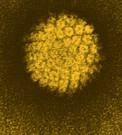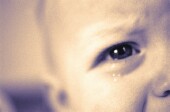Otolaryngology
Home Otolaryngology
Changes Being Made to Med School Applicant Assessment
New skills being emphasized on MCAT; multiple mini-interview technique being adopted
FDA Launches First App to Identify Drug Shortages
App IDs shortages, resolved shortages, product discontinuation; can be used to report shortages
HPV-16 Tied to Improved Survival in Advanced Esophageal Cancer
Improved survival and treatment response for HPV-16 positive patients
Rush University Adds Patient Scores to Doctor Profiles
Scores based on 30 or more patient surveys completed in one-year period
Six Months of Valganciclovir in CMV Provides Long-Term Benefit
Improved hearing and developmental outcomes in long term for neonates with symptomatic CMV
Research Measures Perceptions of Physician Compassion
Patients perceive higher level of compassion among physicians who provide a more optimistic message
Sedative Pre-Anesthesia Doesn’t Increase Patient Satisfaction
Trend in the United States is not to give patients these meds before procedure
February 2015 Briefing – Otolaryngology
Here are what the editors at HealthDay consider to be the most important developments in Otolaryngology for February 2015. This roundup includes the latest...
Hospital Design Has Little Effect on Patient Satisfaction
Aesthetics aren't as important as care from doctors, nurses, and staff, researchers note
Circadian Clock Has Significant Impact on Allergic Reaction
Allergic diseases exhibit circadian variations, may be suitable targets for chronotherapy



















